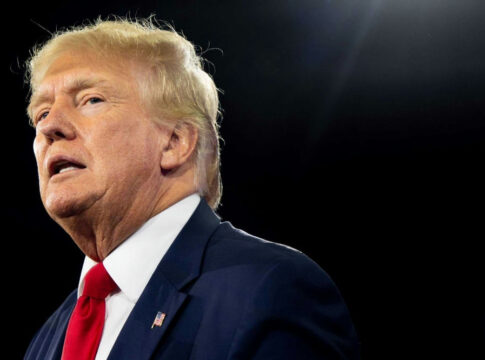Celebrity activism again targets Trump and his voters, with John Fogerty praising Bruce Springsteen’s on‑stage attacks while media echo chambers work to keep the feud alive.
Fogerty Applauds Springsteen’s On‑Stage Broadsides
Rolling Stone’s interview, summarized in coverage, quotes John Fogerty saying he is “really proud of Bruce” Springsteen for “sticking up for his values” and “not being afraid to voice them.” Reports add that Fogerty suggested Trump made a mistake by publicly targeting Springsteen after the shows. The remarks revive a familiar script where celebrity critiques are elevated as moral rebukes, then repackaged across outlets to extend the storyline and cast Trump as the antagonist.
Springsteen’s 2025 European tour became the stage for pointed political commentary. Coverage says he labeled Trump’s administration “corrupt” and urged crowds to “raise your voices against authoritarianism,” framing the stakes as threats to democracy. The comments reportedly came during May tour stops, including Manchester, and were quickly amplified. Days later, Trump responded on Truth Social, keeping the exchange in the headlines and ensuring the narrative migrated from concert halls to national media cycles.
Longstanding Artist–Trump Frictions Provide the Backdrop
Both musicians have history with political speech and with objecting to Trump’s use of their songs. Springsteen opposed the use of “Born in the U.S.A.” at campaign events and campaigned for Democrats in 2016. Fogerty sent a 2020 cease‑and‑desist over “Fortunate Son,” arguing the song criticizes privileged draft dodging, and later endorsed Joe Biden. That pattern of music‑use disputes and public positioning set the context for 2025’s tour remarks and Fogerty’s endorsement of Springsteen’s rhetoric.
Media framing emphasizes musician‑to‑musician solidarity: a veteran rocker validates another’s speech while portraying Trump’s counterpunch as tactically unwise. Supporters of Springsteen view the commentary as defense of democracy; critics see partisan lecturing from entertainers with massive platforms. The cycle benefits publicity on all sides—artists gain press, outlets gain traffic, and political actors reinforce narratives that energize loyal audiences, even as the exchange does little to address policy substance.
Why This Matters to Conservative Readers
The story is not about music; it is about agenda‑setting. When star performers denounce a sitting president from the stage and peers cheer them on, legacy media often treats those barbs as civic truth rather than celebrity opinion. That dynamic shapes public discourse by converting concerts into political programming. For conservatives focused on border security, constitutional limits, and fiscal sanity, the spectacle substitutes celebrity heat for real debate on policy outcomes that affect families and freedoms.
Rock legend praises Bruce Springsteen for ‘not being afraid’ to slam Trump on stage https://t.co/GhesDLTe2N
— Fox News (@FoxNews) August 12, 2025
Limits and verification notes: Reports summarize the May show language and the timing of Trump’s Truth Social response without full transcripts. The Rolling Stone interview is referenced through secondary coverage rather than directly quoted at length. Those gaps do not change the core facts: Springsteen delivered anti‑Trump remarks on tour; Trump responded; Fogerty publicly praised Springsteen and called Trump’s reply a mistake. Readers should evaluate the commentary in light of that documented pattern and its recurring media amplification.
Sources:
Rock legend praises Bruce Springsteen for ‘not being afraid’ to slam Trump on stage
Musicians who oppose Donald Trump’s use of their music
Rock legend, 71, makes bold statement praising Springsteen’s anti-Trump remarks

